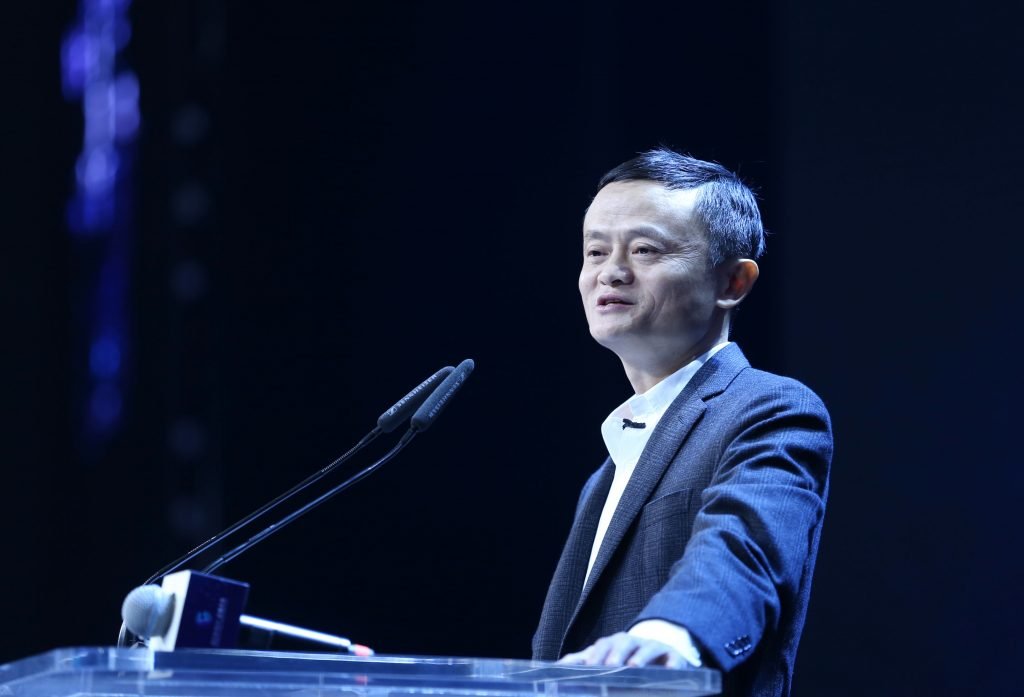
There are almost as many theories about the unfolding Ant debacle as there are commentators. Here are the most notable explanations and key unanswered questions.
First, some background. Ant Group is a spinoff from the Chinese e-commerce giant Alibaba. Alibaba is owned, though no longer managed, by Jack Ma, China’s most famous billionaire and celebrity superstar. Ant in turn controls Alipay, a hugely successful digital payments app with more than a billion users in mainland China, which processed some “$17 trillion in digital payments in the year to June [2020].” Ant also runs a $250 billion money market fund (China’s largest), but in recent years its fastest growing source of profit has been a burgeoning lending operation specializing in small loans to customers who, according to Ma, were being ignored by China’s state-owned financial institutions. An instant money maker, the lending operation is highly leveraged, with Ant holding only 2 percent of the loans on its books — the balance was palmed off to other banks and lending institutions. Despite these deep moves into the financial sector, Ma continued to insist the Alibaba and Ant operations were technology entities and thus not subject to China’s strict regulations governing financial operations.

The Ant initial public offering
All of this serves as the backdrop to the decision, some months ago, for Ant to go public with an initial public offering (IPO). Investors large and small, in China and beyond, flocked to participate in the IPO, which was to be executed on both the Shanghai and Hong Kong stock exchanges. It was projected to raise some $34 billion, valuing Alibaba at over $300 billion, a figure larger than most Chinese and US banks. The joint Shanghai-Hong Kong listing had geo-economic significance as it would have portended the emergence of China’s stock exchanges as domestic funders of China’s development.
Abruptly and astonishingly, on November 3, two days before its execution, the IPO was suspended after Chinese regulators intervened (at President Xi Jinping’s personal direction) and ordered Ma and Ant to adhere to much stricter financial regulations — specifically ordering Ant to fund at least 30 percent of the joint loans with banks.
What was behind the sudden reversal?
There are both proximate and deeper, systemic reasons for Xi and the Chinese Communist Party’s (CCP) intervention.
- Ma’s arrogant hubris. Ma has often boasted of his close relationship with Xi and CCP hierarchy. Recently, however, he has gone close to the line — and over, it now seems. In a widely publicized October speech, Ma directly attacked Chinese financial regulators and accused big Chinese banks of adopting a “pawnshop mentality” that “has hurt a lot of entrepreneurs.” President Xi was reportedly furious, as the attack went viral and struck at the CCP itself. As one commentator put it, Xi doesn’t care how you got rich, he cares about “what you do after you get rich, and whether you’re aligning your interests with the state’s interests.”
- Prudent regulation. In a fundamental sense, Chinese regulators reacted in much the same way that US or European officials might have to a systemic financial sector risk. For years, Ma had gotten away with calling his empire merely another tech entity, thus escaping China’s more stringent financial regulations. President Xi and the CCP prizes financial stability above all, and in the end, Ant’s highly leveraged and opaque operations threatened that stability. Chinese regulators stated that they acted to “better maintain the stability of the capital markets and to protect investors’ interests.”
- Authoritarian political control. Though economic calculations and fears loomed large, it was the political implications of the loss of control that really spooked CCP leaders. Beijing aims to build a future digital financial system centered in China, but it is just realizing the political dangers. The Financial Times notes: “Finance in China has always been regarded as far too important to be left to the private sector . . . So a big part of what spooks Beijing about Ant and its counterparts is the threat they pose to centralised control.”
- New competition policy objectives. While it is still early, there are signs that China’s Big Tech companies face challenges similar to their American counterparts. Beijing is advancing new antitrust rules aimed directly at giant firms such as Alibaba — which controls three-quarters of Chinese sales and has instituted practices forcing small retailers to abide by restrictive practices and pledge loyalty to its platform — and Tencent, which has put similar strait-jackets in place. Whether Beijing will persist in this defense of the “little guys” remains to be seen.
Beijing is paying a heavy price for the mess the Ant IPO has become, showing the world China’s initial regulatory dawdling and internal contradictions. There is also the ultimate question of whether Xi’s tightening authoritarianism can manage upstart capitalists like Ma and his younger counterpart, TikTok’s Zhang Yiming.
The post Ant: China puts the ‘fin’ back in fintech — and a tech superstar is brought to heel appeared first on American Enterprise Institute – AEI.
